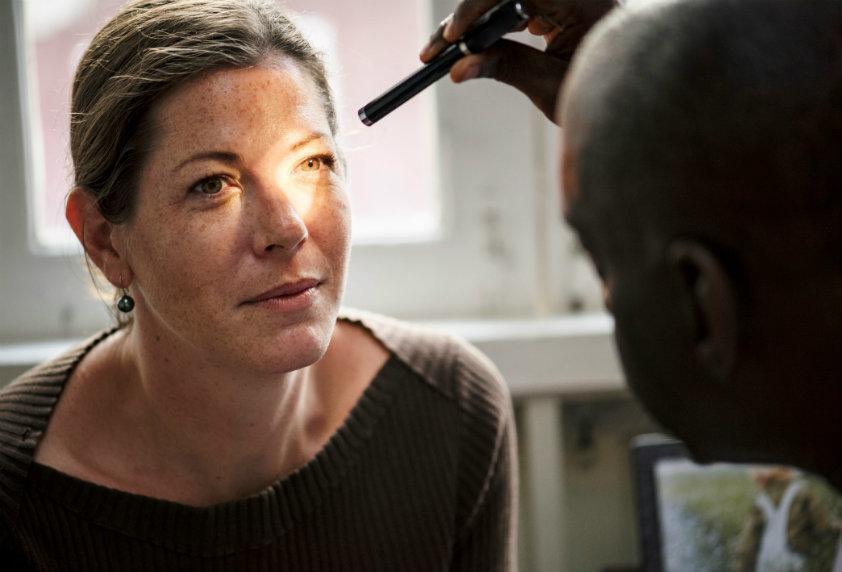Age is just a number – especially when it comes to refractive eye surgery
If you wear corrective lenses, LASIK has probably crossed your mind. You may have imagined the convenience of reducing or eliminating the need for contacts or eyeglasses – especially those glasses. Wouldn’t it be great to stop wasting time searching for them?
You’re not alone. Most of us nearsighted have thought about how nice it would be to wake up and not have to “feel” our way to the coffee maker.
There’s no reason to put off LASIK eye surgery, especially if you think you’re too old. LASIK is safe and effective, with 90 percent of people who have undergone surgery saying their sight is significantly better and eight out of 10 individuals no longer needing their corrective lenses.
So, what’s stopping you? Are you concerned that you are no longer a candidate for LASIK because of your age? As you’ll see, your age may not necessarily disqualify you from this life-changing vision correction surgery. And if you aren’t a candidate for LASIK, there are other surgical vision improvement options.
LASIK eye surgery age limits
LASIK is FDA-approved for anyone aged 18 and older. This is the only hard and fast rule for an age limit for this procedure, but since adult vision is typically at its healthiest from age 19 to 40, anyone within this range is a great candidate.
At around age 40, your eyes start to change, and you may develop presbyopia – farsightedness due to age – which could affect your candidacy for LASIK. Your eyes change again at around age 60, with age-related vision problems such as cataracts possibly presenting at this time. When determining your candidacy, your doctor will consider any changes or variability in your vision associated with age.
However, it is worth noting that ophthalmologists typically evaluate older patients on a case-by-case basis since overall eye health is considered, so it doesn’t hurt to ask.
Factors that impact LASIK candidacy
Before going over the characteristics that can help ensure a successful LASIK outcome, let’s explore the conditions it corrects—refractive vision errors.
Changes in the shape of the cornea or lens cause refractive vision errors. When the corneas’ shapes change, the way light reflects from the cornea and lens to the retina changes vision. LASIK corrects vision by reshaping the cornea, so light is reflected correctly.
Conditions such as nearsightedness, farsightedness, astigmatism, and presbyopia are considered refractive eye conditions that can often be corrected with LASIK.
Eye conditions that impact LASIK candidacy
Your ophthalmologist will evaluate the state of your eyes when assessing you for LASIK eye surgery, including:
- Overall eye health: If you have an existing condition, like dry eye syndrome, cataracts, glaucoma, or another eye condition, you may not be a good candidate for LASIK.
- Pupil size: If your pupils are very large, you may experience glares or halos following LASIK surgery.
- Cornea thickness and smoothness: If your cornea is too thin or the surface is an irregular texture, it could compromise the outcome of the surgery and could even result in your vision getting worse.
- Prescription stability: You must have the same prescription for at least 12 months.
- Pregnancy: Hormonal shifts associated with pregnancy and lactation could result in dry eye symptoms, impacting your LASIK candidacy.
Refractive Lens Exchange For Older Adults
Older adults, especially those who have never worn glasses, may think LASIK is their only solution as they begin to age and need reading glasses. However, due to the number of disqualifying factors, many 40 and older may not be good candidates for LASIK.
Fortunately, there is another option for aging eyes: refractive lens exchange (RLE). This procedure involves the replacement of the eye’s natural lens with a lens implant. Implantable lenses can minimize or eliminate your need for corrective eyewear to see up-close objects. RLE is an alternative to LASIK for people with extreme farsightedness and mild to moderate nearsightedness.
RLE is also an effective treatment for individuals with aging eyes. After age 40, your eye’s natural lens grows rigid, making it difficult to focus on all distances. Replacing your natural lens with an intraocular lens (IOL) may dramatically improve your ability to focus on objects near and far.
Talk to an eye doctor about RLE to determine if you’re a good candidate for this procedure.
Is LASIK or RLE right for you?
Although you’ve received a lot of information about whether LASIK eye surgery or RLE may be right for you, the only person who can make the determination is a doctor specializing in eye surgery, like the ophthalmologists at Southwestern Eye Center.
They will perform a complete examination and assess whether LASIK eye surgery or RLE can change your life for the better.

